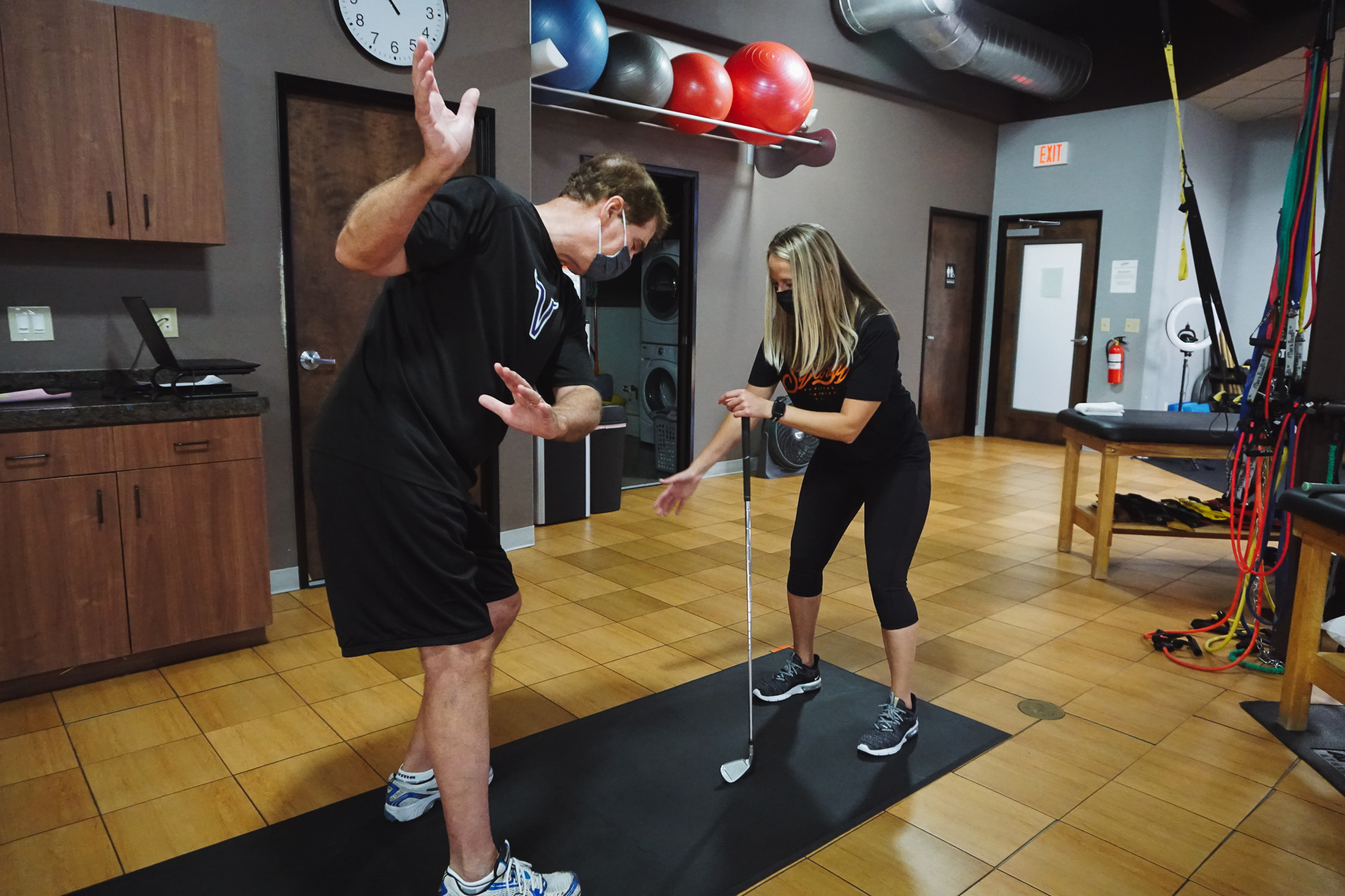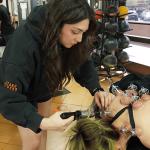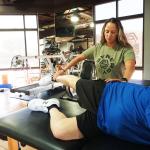Q&A with Kaley Marcinak, PT, DPT on her TPI Certification
Explain what the TPI certification is, who oversees the certification process, and what the process is like for you.
The TPI certification is a specialized golf certification overseen by the Titleist Performance Institute group of professionals who developed a “swing-body connection” movement screen involving a 16 step evaluation of the golf swing. The certification has three levels, where Level 1 is the same basic foundation for all. After Level 1 you have 4 options to concentrate your focus on based on your field of study or educational interests including: Golf, Fitness, Medical, Power, or Junior. Once you pick which route you want to take, you then have 2 additional levels totaling in a Level 3 Speciality which in my case will be the Medical route. You are currently Level 1 certified, and working on Level 2.
Explain the differences between levels, and how many certification levels there are.
Level 1 is the basic foundation of the TPI “Body-Swing Connection” movement screen. What this screen does is break down a player's swing into 16 developmental movements. It teaches us not to make a “textbook” swing pattern but rather determine the movement capabilities of each individual golfer and generate the most efficient swing for that particular player, which is where Level 2 Certification comes into play. Level 2 Medical certification involves developing corrective exercises based off of the “Body-Swing Connection” faults or limitations. It is a great combination of using a trained Physical Therapist eye and allowing us to use our doctoral education in a different light.
What can you offer your patients that other PTs without a TPI certification can’t?
Having the TPI certification allows me to perform a quick, roughly 10 minute movement screen (16 step swing analysis) and set up an individualized plan of care that will cater to that individual golfer’s swing mechanics in order to optimize their play. It is a specialty in golf and puts me a part of a specialized group with constantly updating resources to use. TPI looks to be geared toward golfers.
Can you explain how it allows you to help golfers specifically? And why is it applicable to non-golfers as well?
The TPI is geared toward golfers due to the development of the screen involving a world class team of professionals including but not limited to physical therapists, coaches, and professional athletes themselves. The reason it is also applicable to non-golfers as well is because the screen is consistent with the theories behind the Functional Movement Screen (FMS) and the Selective Functional Movement Assessment (SFMA). Both of these assessments were developed by a combination of outpatient orthopedic physical therapists and surgeons.
Are there any specific injuries or problems that are better treated by someone who has a TPI certification?
TPI Certified Physical Therapists will develop a more “trained” eye when evaluating golf injuries due to the foundations of the “Body-Swing Connection” swing and as a result, will be able to more efficiently develop an individualized plan of care to benefit the golfer and his/her swing.
What made you want to pursue the TPI certification?
Since moving to Arizona it has become obvious that Arizonians love to golf and that there are roughly 200 golf courses in the greater Phoenix area, meaning the probability of my outpatient population being recreational/avid golfers is high. That being said, I feel it would be an injustice if I could not do my part to give them the best care possible. In addition to the Phoenix area being heavily interested in golf, I, myself enjoy golfing. I love incorporating my passion for helping others with the ability to tie it to sports-related tasks, being that I have played sports all my life.
What would you like patients to know about your TPI certification?
I would like my patients to know that I am well versed in the fundamentals of their golf swing due to the TPI certification course. I also want my patients to know that I am going to do my best to continue to learn more and more about the game so that I can help them not only improve their golf game but improve how they move and feel physically.
You also have your Functional Movement Screen credentials. Can you explain what FMS is and what the certification process is like?
The Functional Movement Screen, or FMS, is screen-based off of basic movement principles learned during higher-level education that relate to the ability to safely perform everyday tasks and help improve skilled movement. The FMS is a baseline screen to allow us to not only develop an individualized plan of care, but also to track his/her improvements throughout their care. The certification process involves an online intensive prerequisite, in-person seminar/webinar, and finally followed by a certification exam.
What can you offer your patients that other PTs without FMS credentials can’t?
Being certified in FMS allows me to not only take a deeper look into basic movement principles, but also allows me to be more efficient in movement screening to find areas of restriction/limitation that I can build an individualized plan of care based on.
Are there any specific injuries or problems that are better treated by someone who has FMS credentials?
FMS certification can allow me to more efficiently screen/treat the athletic or recreational sport patient population. There are not any specific injuries that it will improve my treatment on; however, it will help in prioritizing movement restriction/limitations to focus on.
What made you want to pursue your FMS credentials?
I pursued the FMS credentials because I want to make sure I continue my education and have a strong foundation to treat my outpatient orthopedic population, even more specifically the athletic population.
What would you like patients to know about your FMS credentials?
I would like my patients to know that the FMS credential is merely just another “tool” in my toolbox to help individualize their plan of care and treat them to the best of my abilities.






